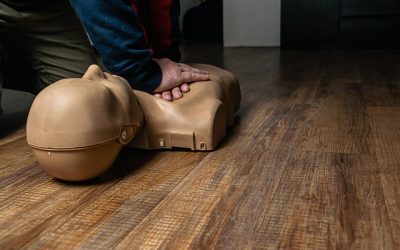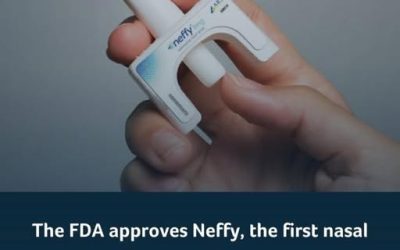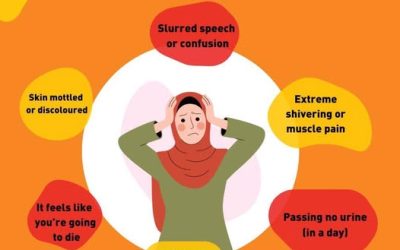Mental health challenges are rising across the UK, and more people than ever are entering periods of despair, hopelessness, and suicidal thoughts. For this reason, psychiatry first aid is critical. It allows anyone, anywhere, to deliver help to the person suffering before professional teams arrive on the scene or become available.
Psychiatry first aid matters because of how common it is for many people to enter profound states of depression or experience mood disorders. Given that nearly a quarter of individuals in the UK experience a mental health episode annually, the likelihood of a situation like this emerging is substantial. As such, JMS First Aid Training is a key provider of relevant mental health training in Brackley. Our courses provide professional guidance on how to react when someone needs mental health first aid.
What Is Psychiatry First Aid?
Psychiatry first aid is a training programme that helps trained individuals recognise and respond to the signs of mental health problems. The idea is to give trainees the skills necessary to provide field support to patients until they can get professional help from official sources (like psychiatrists or psychotherapists).
Psychiatry first aid–sometimes called mental health first aid–operates during the first few minutes or hours of a crisis, similar to conventional first aid. Training teaches individuals how to approach patients who may be struggling, providing them with knowledge and offering practical support.
Psychiatry first aid is not a replacement for regular therapy or diagnosis, and those who take part in these courses aren’t officially qualified. However, programmes can help detect mental health issues before they become more severe over time. Furthermore, they can help struggling individuals begin their journey to recovery through empathy, practical assistance (such as finding professional help), and reassurance.
Why Psychiatry First Aid Matters
Psychiatry first aid matters for numerous reasons. Addressing issues promptly instead of waiting almost always leads to better outcomes for patients, their families, and others associated with them.
Early Intervention
Early intervention is a significant advantage of mental health first aid. Timely support reduces the risk of negative outcomes and ensures that the affected individual gets the professional help they need faster. For example, spotting the signs of anxiety early can reduce the risk of social isolation.
Reduces Stigma
Psychiatry first aid also reduces stigma. Many people feel embarrassed by their mental health problems or are unwilling to share them with others because of the fear of ridicule. However, mental health first aid can offer a supportive, empathetic ear, encouraging affected individuals to discuss issues openly.
Prevent Escalation
Finally, psychiatry first aid can reduce the risk of escalation. For example, a first responder could help someone having a panic attack, calming them down and reducing further medical risks.
Key Differences Between Traditional and Mental Health First Aid
The differences between traditional and mental health first aid are substantial. Here’s a quick rundown of the key points:
- Scope. Traditional first aid focuses on physical injuries and illnesses, like scrapes, puncture wounds, and heart attacks. Meanwhile, mental health first aid deals with problems that affect the mind, helping to mitigate psychological challenges or crises.
- Skills. Traditional first aid requires skills like covering a wound with a bandage or performing cardio-pulmonary resuscitation (CPR). By contrast, mental health first aid focuses on de-escalation, empathy, and practical support to find psychiatric professionals.
- Goal. Traditional first aid revolves around keeping a person alive until medical assistance arrives or treating health conditions on the spot before going to the hospital. Meanwhile, psychiatric first aid involves supporting someone in distress until professional help becomes available.
Please note that both are critical; they just deal with different emergencies.
Who Should Take a Mental Health First Aid Course?
Numerous people can benefit from taking a mental health first aid course. These allow them to respond quickly to a crisis and manage the situation before additional help arrives.
- Employers: Managers, and HR professionals can assist people experiencing burnout or distress in the workplace.
- Teachers: Education professionals can use mental health first aid to detect students experiencing mental health challenges
- First responders: Accident scenes can be traumatic, so it can help first responders to have mental health first aid skills alongside physical ones
- Carers: Support workers can assist clients, especially those with pre-existing mental health needs
- Community leaders: Pastors, club representatives and others can often find themselves dealing with a sudden mental health crisis if they interact with many people
- Parents: Mental health first aid lets caregivers detect mental health crises among children
For practical purposes, almost everyone can benefit from mental health first aid, including those experiencing challenges. Knowing what to do and how to do it is critical.
What to Expect from JMS First Aid’s Mental Health Awareness Course
JMS First Aid’s Mental Health Awareness Training is an expert-led course in Northampton and nearby that equips you with the essential skills to provide psychiatry first aid in your environment. It covers how to respond to a situation best and where to look for relevant healthcare.
Level 1 RQF covers the basics in mental health and helps you recognise common concerns (like anxiety and depression). It teaches:
- How to approach someone
- Listen actively to their problems
- Tell them where they can get help
Level 2 RQF is a specific qualification for dealing with situations at work, while the Level 3 RQF offers more comprehensive workplace training (suitable for managers and team leaders).
To be eligible for these courses, candidates must be over 16 and have Level 1 Numeracy and Literacy (or the equivalent). For the Level 3 course, they should also be interested in understanding mental health at an advanced level, although no prior experience is required.
Check out our Mental Health Awareness Course here.
Conclusion: Build a More Supportive Brackley Community Through Mental Health Awareness
Ultimately, psychiatry first aid is one of the most powerful tools at our disposal for dealing with mental health and substance abuse challenges in the UK. These skills enable early intervention, preventing mental health crises from spiralling out of control.
Fortunately, JMS First Aid is helping local individuals and workplaces become more supportive, allowing them to deal with these challenges when they arise. Sign up for our mental first aid courses today to get started or book online.




